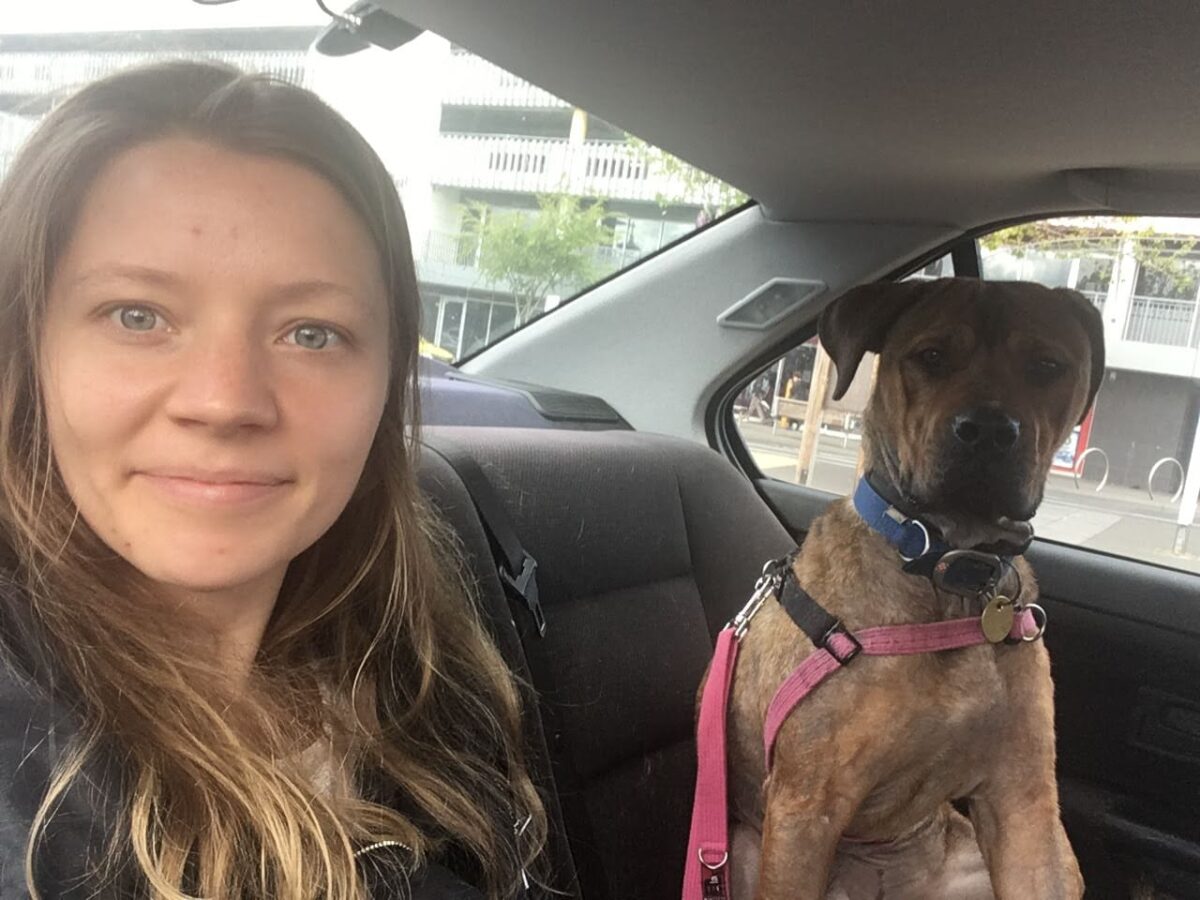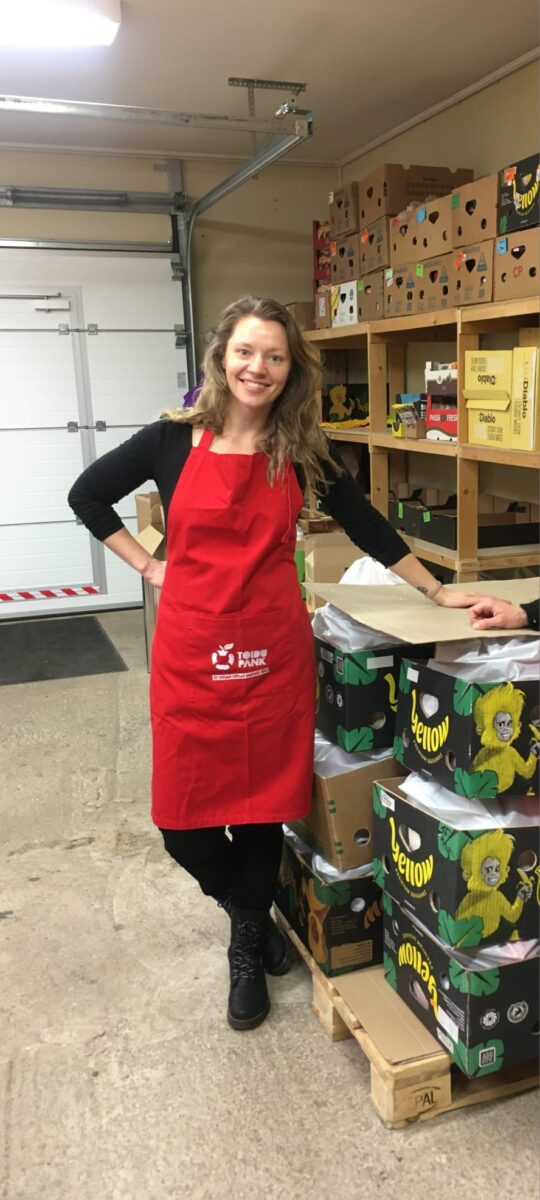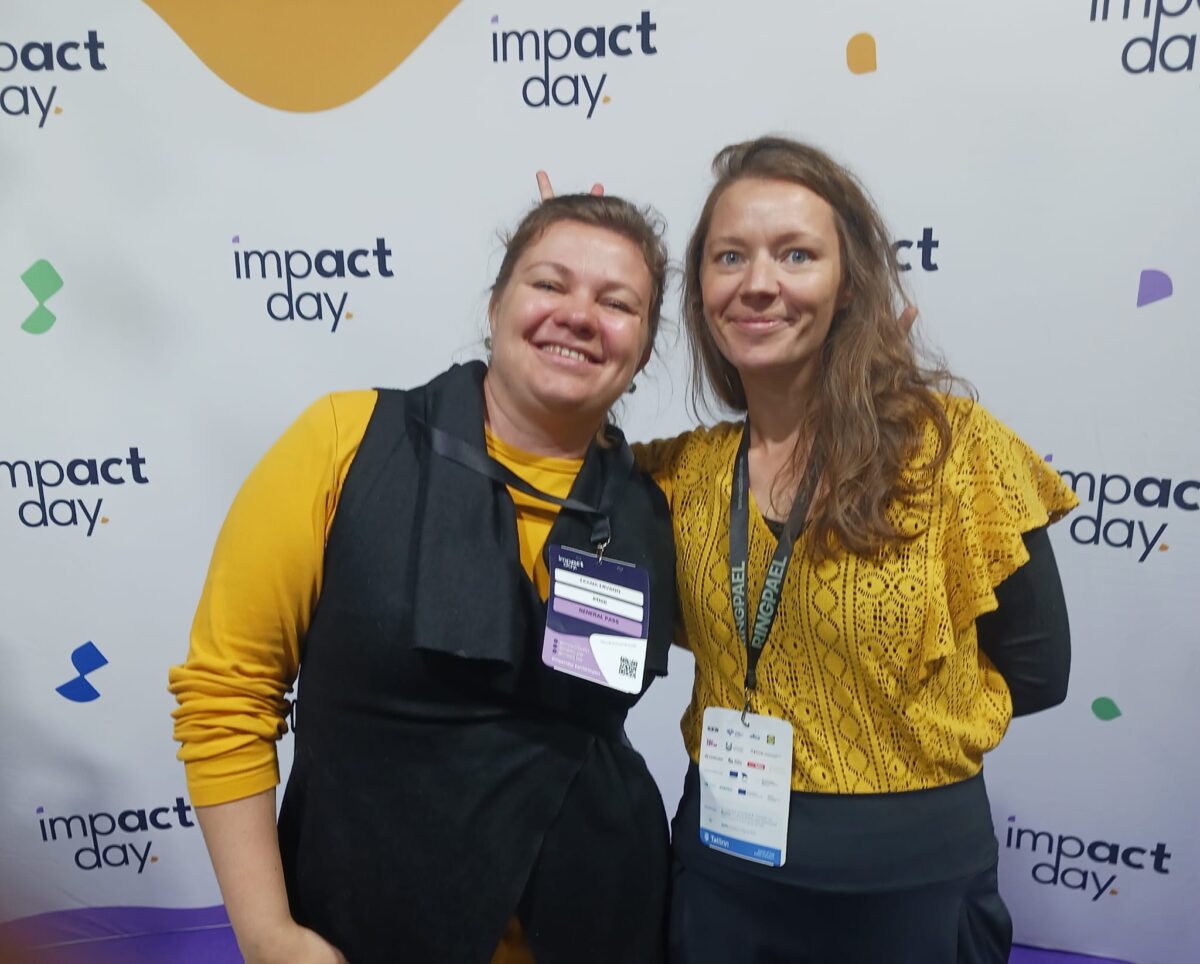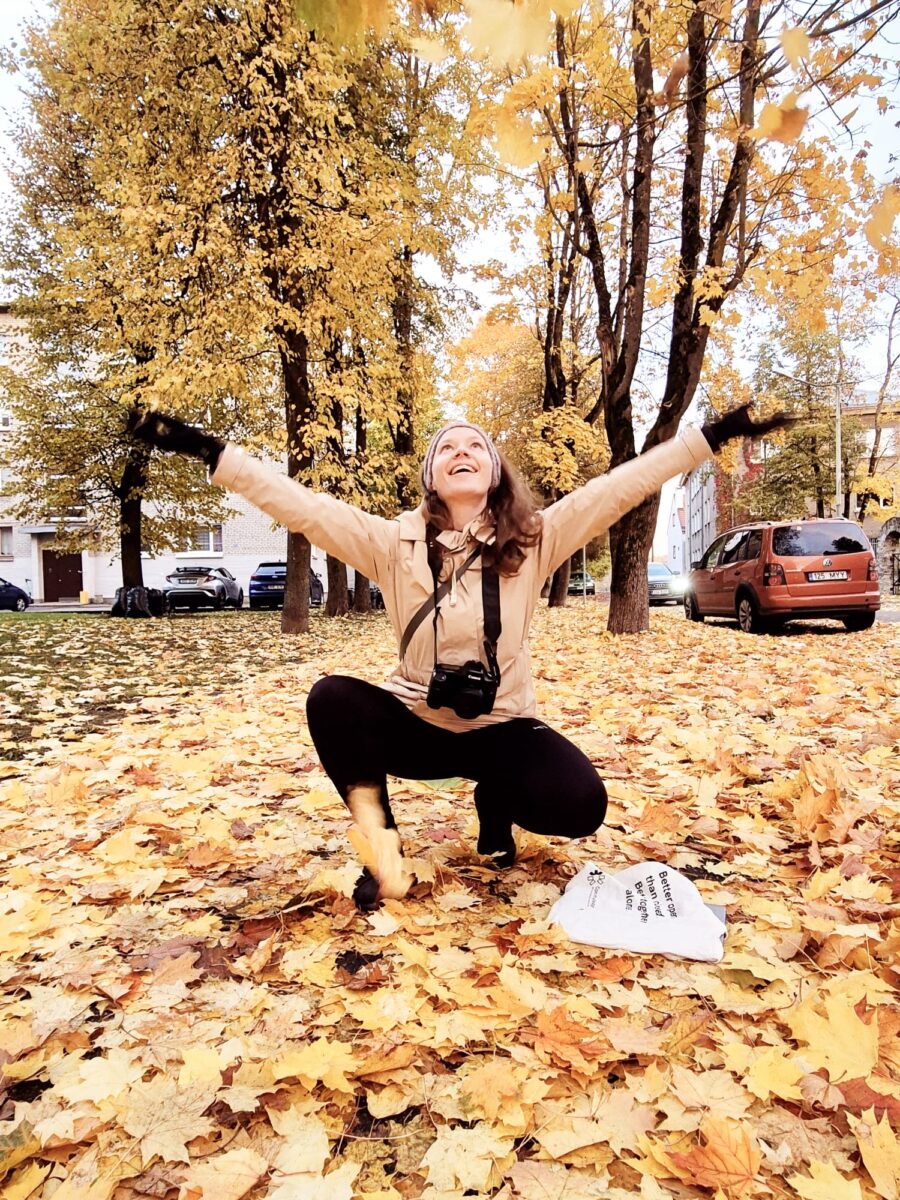Sandra Paulus – a curious creative spirit who seeks meaning and creates opportunities
Meet the Next Member of Our Team – Sandra Paulus, who works within the Swiss-Estonian Cooperation Programme measure “Supporting Social Inclusion”, where she coordinates social innovation sub-activities.




How would you describe yourself in the most accurate way?
I’d say I’m fairly balanced by nature – friendly, empathetic, open, determined, and a little headstrong. Someone once described me as “a bit like a cat who walks alone.” Whether they meant it in a good way or not, I actually agree. I’ve always been drawn to twists and turns over straight roads – I crave variety and a dynamic environment.
I enjoy reflection, analysis, exploring new ideas, and initiating new activities. That’s probably why I rarely stay in one “box” for long. My path has taken me from furniture restoration to social sciences, and I have a constant need to move forward, to develop, and to seek out those spaces where I can create added value.
At the same time, I love slowing down and have come to realise that I actually need it. I’ve been practicing – and have gotten pretty good – at unplugging for a day and allowing myself to simply rest for the joy of it.
What is your role at NFCS, and what kinds of questions can people bring to you?
I joined NFCS in 2020 as the coordinator for international competitions, supporting NGOs in building their capacity to operate internationally. I had just returned to Estonia and this was my first deep dive into Estonian civil society. I’m extremely grateful for the opportunity – I learned and grew rapidly and gained a diverse perspective on how much meaningful impact NGOs actually create.
Today, I’m part of an inspiring and motivated team with the privilege to contribute to an environment that fosters sustainability, impact, and innovative solutions to complex societal challenges. Anyone is welcome to reach out to me with questions, thoughts, or ideas related to social innovation.
Social innovation is a topic close to my heart because it allows us to analyse our environment and approaches and find ways to act more effectively. This, in turn, creates an opportunity to generate greater value in society.
The project I help coordinate and implement is part of the Swiss-Estonian Cooperation Programme “Supporting Social Inclusion”. The measure “Strengthening Civil Society through Advancing Social Innovation” aims to empower stakeholders tackling societal challenges by raising awareness and helping them explore how social innovation can lead to impactful solutions.
What has been your experience with civil society so far?
Throughout my life, both in Estonia and abroad, I’ve contributed here and there in different ways. My first bigger encounter with civil society was over ten years ago when I started fostering cats, which opened my eyes to the challenges of animal welfare. Since then, I’ve provided foster care in Estonia, the Netherlands, India, and Australia – to many cats and even two lovely dogs.
One of my most emotionally inspiring experiences with civil society was in the Netherlands years ago. I was active in two organisations – De Mensenbieb (“The Human Library”), where I helped organise community dialogue days, photographed, and wrote articles; and at the community centre De Kaskantine, where we hosted book evenings, bike repair workshops, and worked in a community garden. I think that’s where I first truly realised that I wanted to dedicate my knowledge, skills, and time to civil society.
Today, I’m more active as a member of the NGO Effective Altruism Estonia, which explores how to do good better. I garden at Pelguaed, am a regular blood donor, a recurring donor to a few organisations, and a member of the Women’s Voluntary Defence Organisation.
What do you do in your free time?
I keep active – going to the gym and running, and I spend a lot of time outdoors. Occasionally you might find me with Eerik Kumari’s Field Guide to Estonian Birds and binoculars, birdwatching. My favourite times of the year are summer bike trips and the Haapsalu Blues Festival.
For bursts of creativity, I have a set of watercolours and a guitar at home. Though in recent years I haven’t had much time for them, they’re patiently waiting their turn. I also love reading – this year the Loomingu Raamatukogu series has been a wonderful addition to my bookshelf. I enjoy going to the cinema and have particularly loved the unprecedented variety and quality of Estonian films this year. And yes, I also enjoy cooking.
What is your heartfelt wish for Estonian civil society, NGOs, and communities?
My heartfelt wish is that we learn to preserve all that we have built so far – it’s of tremendous value and never to be taken for granted. I also hope we take the time to be open, curious, and collaborative in finding creative and impactful solutions to the challenges that affect each of us and those close to us every day.
I wish for us to trust ourselves more – to believe that within each of us, shaped by our unique life experiences, lies the knowledge and ability to make a meaningful contribution to the world around us.
What does social innovation mean to you? Is there an initiative that particularly resonates with you?
For me, social innovation is a mindset, a set of values, approaches, and methods that help us rethink how we contribute to society – whether through non-profit work, entrepreneurship, or public sector roles.
It’s about analysing what barriers exist today to creating impact and then working to overcome them. The key lies in collaboration across sectors and stakeholders because the systems we live and operate in are complex. Making them more impactful requires diverse experiences, knowledge, skills, and perspectives.
This is also my favourite part of social innovation – the collaboration and the insights and opportunities it sparks.
There are many initiatives I admire, but I’ll highlight one that’s deeply personal to me. During my master’s studies at the University of Tartu, I had the chance to contribute to the development of MTÜ Töömaja’s activities. Their mission is to support people struggling with addiction in overcoming and managing their challenges and reintegrating into society by offering a range of services.
Together with motivated classmates, we created a service design and social enterprise business plan for Töömaja. We interviewed service users, collaborated with representatives from the prison system, local governments, and businesses, and organised community engagement events. I experienced first-hand how the input from all these stakeholders dramatically shaped our problem definition and the solutions we proposed. It was powerful to see how new collaboration opportunities emerged and broadened the possibilities for creating impact.
A few years later, it’s inspiring to see how those plans have evolved, adapted to needs, and are now making the very impact we envisioned on paper back then.
Interview by Maris Praats.